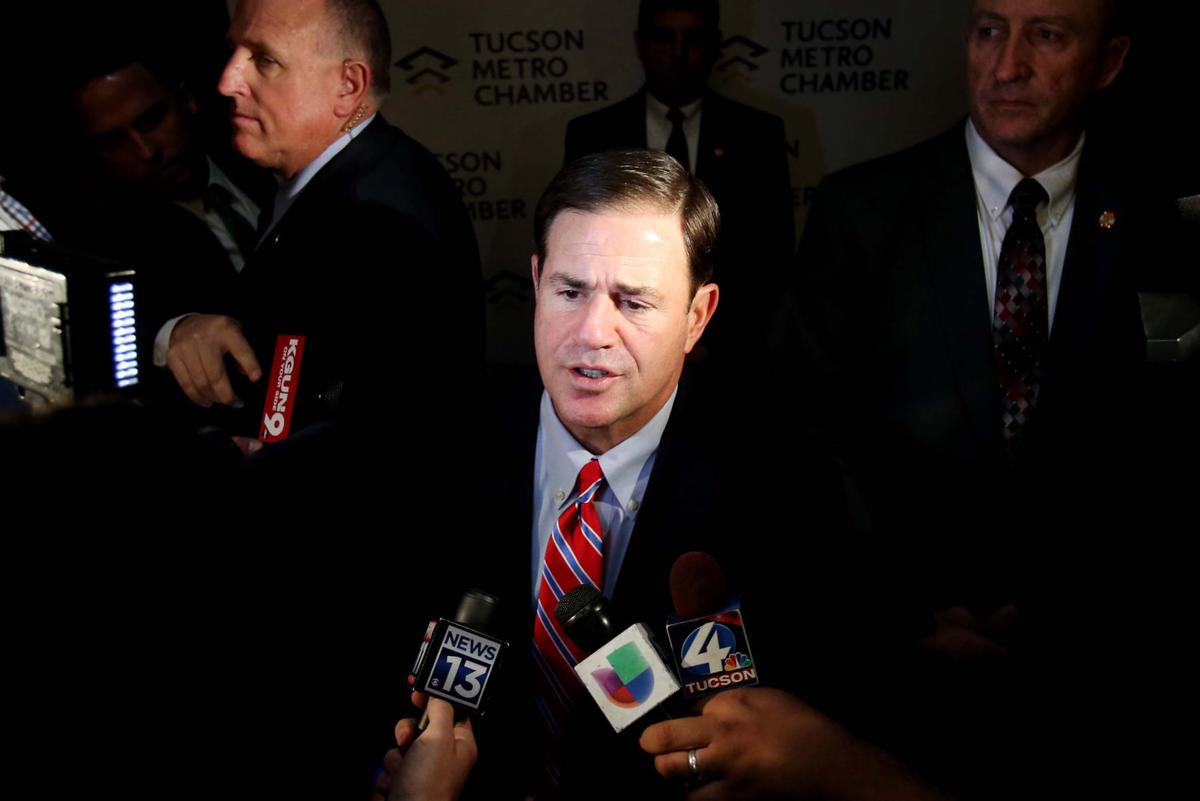PHOENIX — A select group of census tracts around Arizona is going to get what could be a crucial economic boost later this month.
A provision buried deep in the new federal tax law allows governors to designate some areas as eligible to become “opportunity zones.”
What’s significant is those that end up on the list are likely to become magnets for new investment.
That’s because investments made there qualify people for tax breaks on the money they now have that may just be sitting idle.
Daniel Scarpinato, press aide to Gov. Doug Ducey, said officials in all 15 counties — and those in the cities of the two largest metro areas — have submitted their lists of which areas they want to designate.
Those nominations are being reviewed by the Arizona Commerce Authority. It will make recommendations to the governor, who gets the last word.
But Ducey is limited to giving the designation to 168 census tracts, and there are 1,526 tracts in the state.
Ducey has until March 22 to make his selection.
U.S. Rep. Tom O’Halleran, a Democrat whose sprawling district runs from the state’s northern border through Flagstaff, the White Mountains, Casa Grande and into the northern suburbs of Tucson, already is weighing in.
“Our rural cities, towns and counties are primed for revitalization, and many local advocates and officials are readying partners to take advantage of the program,” he wrote late last month to Ducey. And O’Halleran suggests the opportunity zones may provide the needed boost that has not yet materialized.
“What’s been clear to policymakers at all levels is that the conventional approaches to economic development have failed our rural communities where more businesses have closed than new businesses have been created,” the letter states.
Scarpinato said that pretty much aligns with what the governor is thinking.
“While we do have issues of poverty and lack of economic development statewide, if you’re in an urban area you do have access to jobs and opportunities and transportation,” he said. And Scarpinato said Maricopa County, the fastest growing area in the country, is “doing great.”
“But he really wants to see a larger focus on our rural counties,” he said.
The federal law is targeted.
First, only census tracts that meet certain poverty or income criteria can be nominated. Scarpinato said that narrows the possibilities down to 669 tracts.
And the federal law allows Ducey to give the designation to 25 percent of that total, or 168.
Scarpinato said part of what Ducey is weighing in deciding who makes the final cut is what kinds of projects the local governments say they need — and believe could be enticed if the area is designated an opportunity zone.
“Some of these counties have real medical needs where we might be looking at hospitals,” he said.
“There’s airport needs and for some of them there’s manufacturing districts.”
That goes to the other half of the equation: The things that will entice people to invest in opportunity zones. And much of that is wrapped up around capital gains — and avoiding taxes.
According to the Economic Innovation Group, which helped craft the law, there is probably close to $6 trillion sitting around in capital gains — money made on existing investments — what with the run-up in the stock market.
The new law envisions the creation of opportunity funds whose managers would look for eligible projects in the opportunity zones, things like new businesses, investing in existing ones, real estate projects or even infrastructure.
An investor who puts his or her existing capital gains into one of those funds gets to defer paying taxes on that gain.
And if the money remains in that fund for seven years, the taxes due on those deferred gains are reduced by 15 percent.
And there’s another sweetener: If the funds remain for at least a decade, there are no taxes on what is earned from the investment in the opportunity fund.
Getting a designation does not, however, guarantee that investment dollars will pour in.





